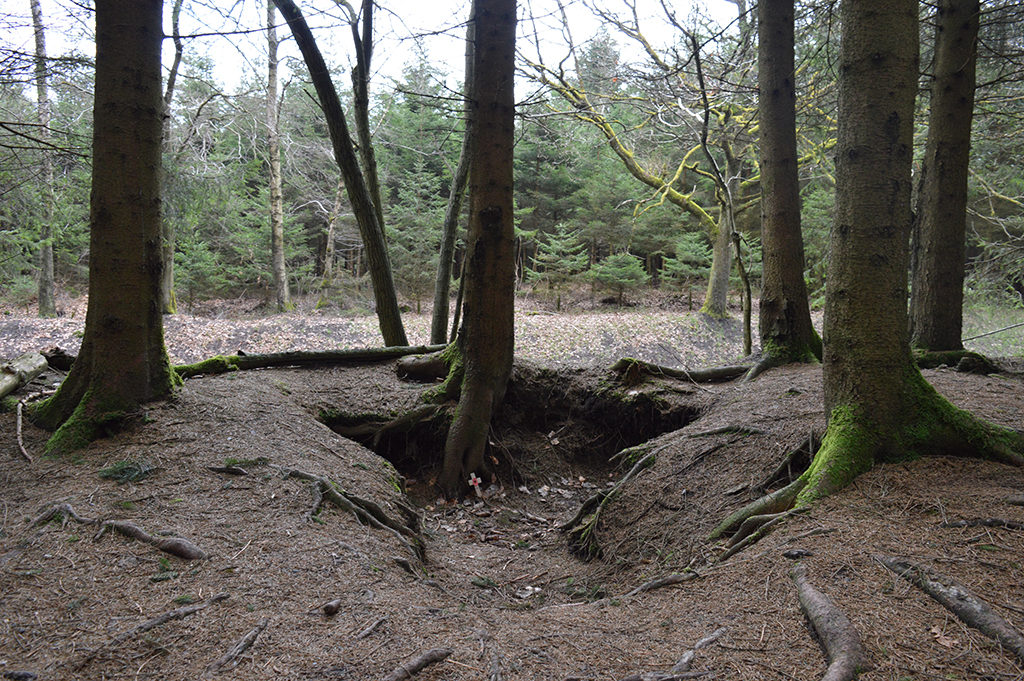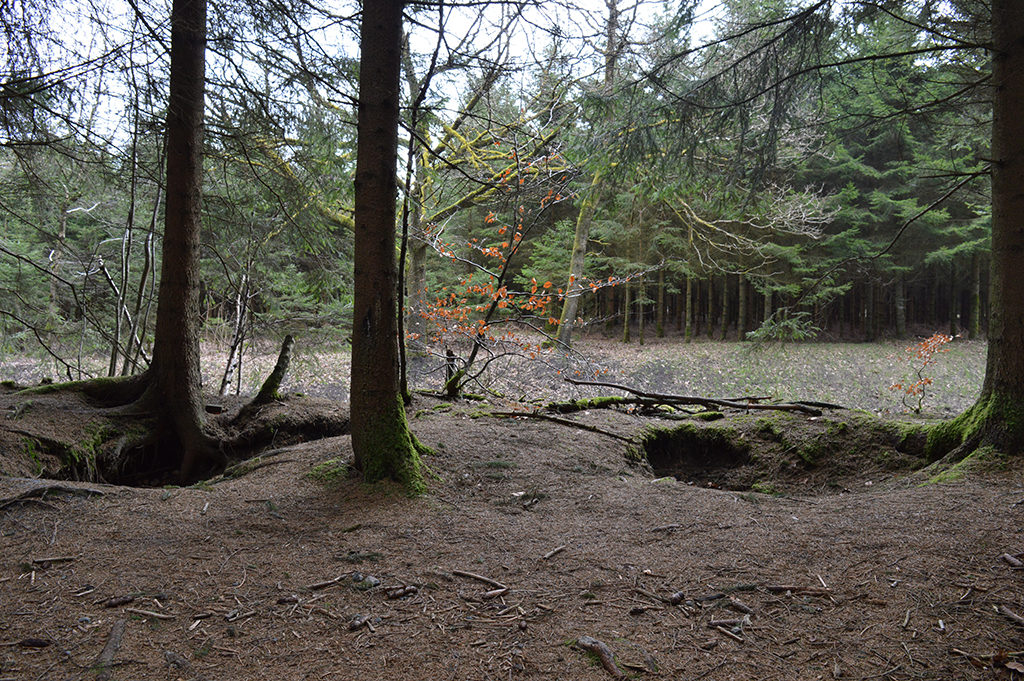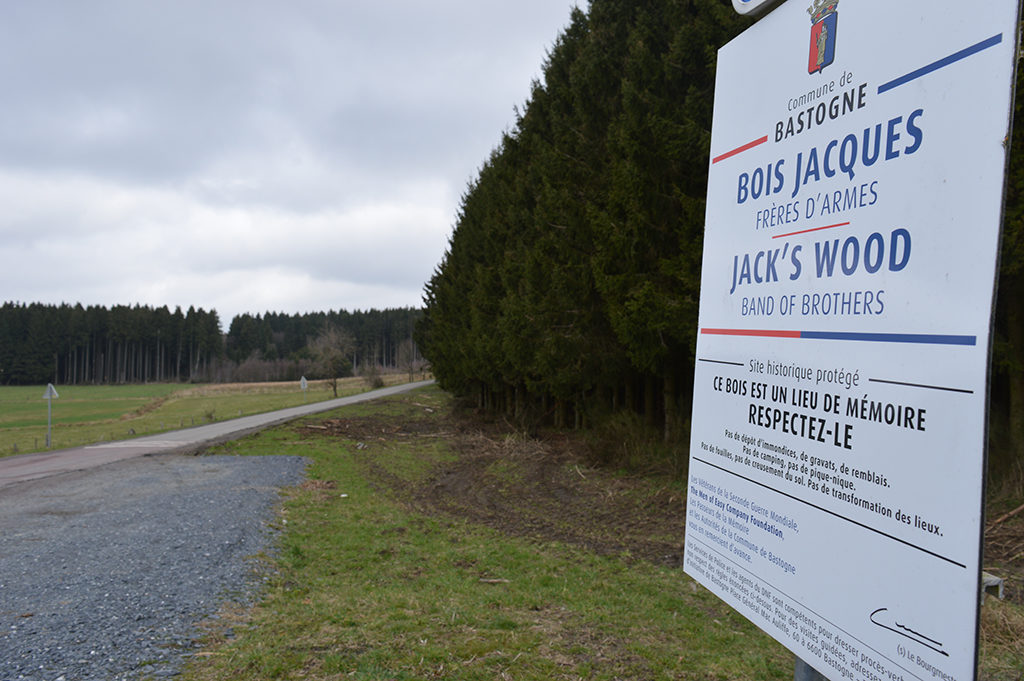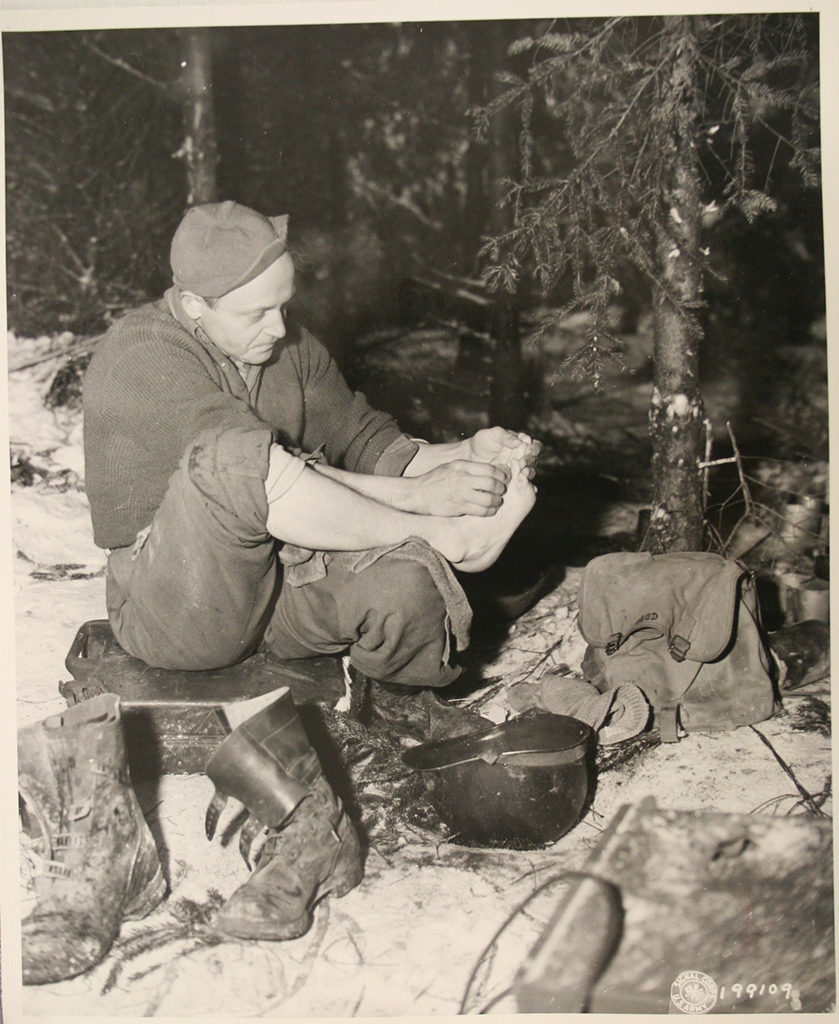- Point of Interest
- Le Bois Jacques, Bastogne, Belgique
The small village of Foy, just four kilometers to the north of Bastogne on the road to Houffalize, was occupied by the Germans from 21 December 1944 to 13 January 1945. The American troops had installed in Jack’s wood in Foy, in their strive for the liberation of Bastogne.
Traces of the battle around Bastogne are still visible in Jack’s wood (Bois Jacques) in Foy: foxholes and cavities dug into the ground in order to protect the American soldiers from hostile fire. They show the hard fighting conditions around Bastogne from December 1944 to January 1945. The winter was harsh and the cold intense, with sometimes temperatures below 28 Celsius at night. In December not only were the American soldiers outnumbered approximately 5-1 by their German opponents, they were also lacking in cold-weather gear, ammunition, food and medical supplies. Due to bad weather the American forces could not be resupplied by air, nor was tactical air support available. After Christmas, when finally the sky was clearing up, the American planes could drop the supplies. In January American reinforcements arrived. The Easy Company, the 2nd Battalion of the 506th Parachute Infantry Regiment of the 101st Airborne Division, occupied Jack’s wood and dug foxholes to protect the unit against hostile artillery. There was constant mortar, rocket and artillery fire from both sides. Between 9 and 13 January the Easy Company suffered its most casualties. On 13 January they attacked Foy and reconquered the village house after house. Casualties on both sides were considerable, but at the end of the day Foy was taken over.
The Easy Company became famous for its role in the Battle of the Bulge. It was further immortalized in Stephen E. Ambrose’s book Band of Brothers, that focuses on the story of the Easy Company, 506th PIR, 101st Airborne. The subsequent TV series were a global success.




